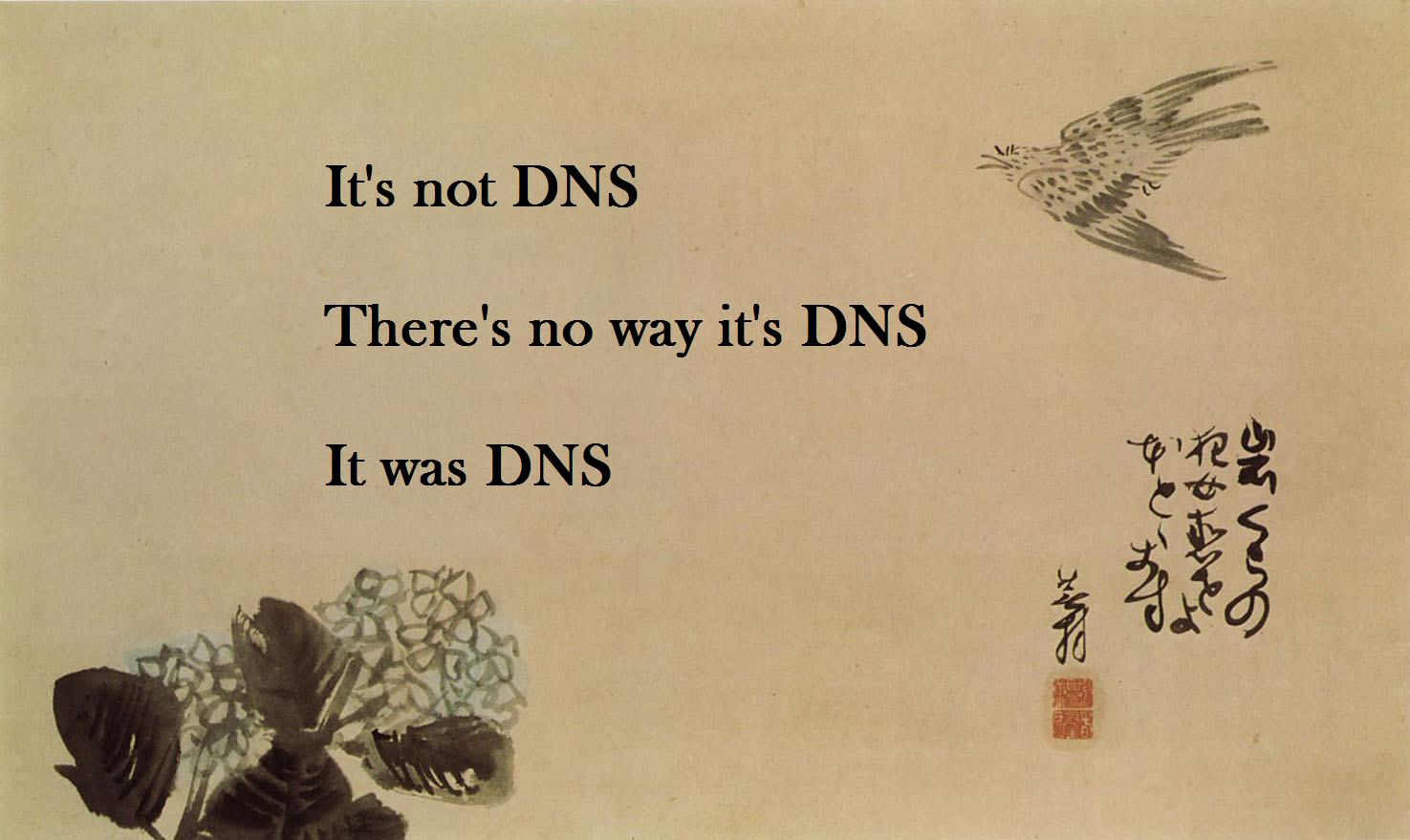I recently published a post about blackmail spam in which the spammer was (as far as I could tell) unsuccessful in their efforts to scam people. Unfortunately, another campaign dropped into my inbox over the last couple of days where the spammer has been much more successful. I’m not going to do the full breakdown…
Security
Taking a look at blackmail spam
Introduction Like many people, I receive quite a lot of spam email. Unlike most, I actually read it, because it’s often interesting. I’ve had a number of email addresses, and between them I think at least one of my email addresses has been included in most of the big website breaches over the last eight…
It’s always DNS
I host a few websites for myself and family on DigitalOcean. Up until recently, I’ve always just spun up a new droplet for each site, so they were all fully independent from each other; this was the easiest and most convenient way to get a new site up and running without jeopardizing uptime on other…
Memcached abuse opens door to massive DDoS attacks
A new reflection attack was unveiled today which can increase the size of a DDoS attack by 51,000-fold. It uses memcached, an object caching system designed to speed up web applications, to amplify attacks against a target. This represents a substantial increase from previous attacks, which have used network time servers to amplify attacks 58-fold…
New Apache Web Server bug can reveal server memory to attackers
Another day, another vulnerability in a widely-used software package. Today’s bug (dubbed Optionsbleed by Hanno Böck, the journalist who documented the vulnerability) can reveal passwords and other pieces of vital information to attackers. While not as big of a threat as Heartbleed, a similar bug which allowed attackers to snag private encryption keys for servers (which…
New WordPress Vulnerability Results in ~2 Million Defaced Sites
The vulnerability was patched in WordPress v4.7.2 two weeks ago, but millions of sites haven’t yet updated. This leaves them open to a vulnerability in the WordPress REST API, which can allow malicious actors to edit any post on a site. Ars Technica has a very nice writeup on the effects of the exploit, which…
Is it time to abandon antivirus software?
I’ve noticed a growing trend in more advanced computer users lately: some of them have begun advocating against using antivirus software. Instead, they suggest using browser extensions like uBlock Origin (which I use and recommend), combined with safe browsing practices, to remove the need for antivirus software altogether. Ars Technica did a very nice write-up on this trend today,…
New Host!
I’ve finally moved to a VPS on DigitalOcean, from my previous (free) shared hosting. I did this for a couple of reasons: first, while my hosting was free for a year with my domain name, that year was almost up. To renew my hosting for the second+ year, I would have needed to pay $38.88/year;…
Clinton’s Email Server
Ars Technica did a nice job of creating an impartial write-up on why Hillary Clinton used an external email server, and how it was actually used. It sounds to me like there’s an institutional history of using private email to conduct business, largely due to obstructive or incompetent IT services (in fairness to the State…
Hacking the Hackers
Have you ever heard of Hacking Team? It’s an Italian company specializing in “digital infiltration” products for governments, law enforcement agencies, and large corporations. Simply put, they sell hacking tools. You might think, given their business model, that they would monitor their own security religiously. Last year, however, they were hacked. Majorly hacked. “Hundreds of Gb” of their internal…





